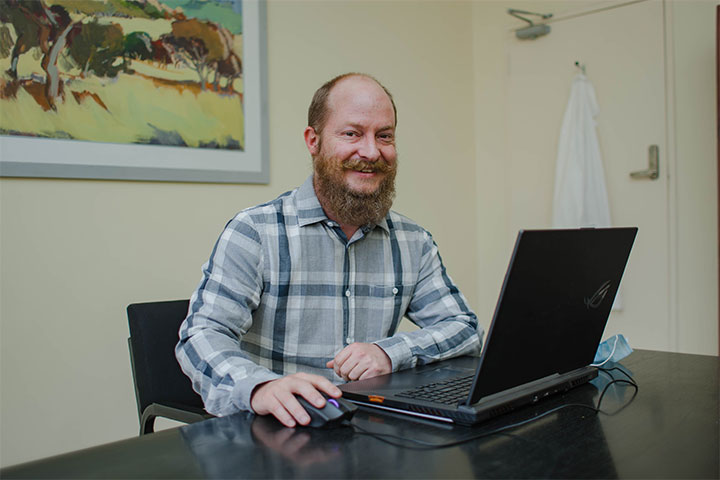What is the electronic Point of Care (ePOC) at Newlands Clinic used for?
The medical record system ePOC is like the clinic’s backbone. From booking patients through to dispensing drugs, managing lab results, and conducting the visits with the nurses – everything happens via ePOC.
It also plays a vital role in the examination. How is that?
It also enables our nurses to provide quality care. Because ePOC incorporates an expert system that we call “wizards”. It contains standardized questionnaires to identify typical health issues related to HIV. The nurses ask the patients a specific set of questions depending on their age and visit type. The answers help to form a diagnosis and manage the patient's care properly. Without ePOC, it would be more challenging to do it on the same level.
ePOC was built from scratch instead of using an already existing program. Why?
I don’t think there was anything at the time, that would have been suitable for Newlands Clinic. I have not seen any system that does it quite the way ePOC does. It is tailored to HIV management in Zimbabwe, especially regarding the wizards. The questions that patients are asked have been considered at length by Prof Ruedi Lüthy and the doctors. They changed over time when doctors learned more about what applies to HIV care and our patients. It standardizes our treatment of HIV/Aids and makes it more efficient.
What role does ePOC play in our clinic’s research work?
All patient data is stored in ePOC. Over time it has grown into a considerable set of high-quality data. It allows our team to contribute to HIV/Aids research through the generation of relevant statistics and information required by the various research studies that the clinic is actively participating in. Providing more accurate research data from countries such as Zimbabwe, it should allow for the development of improved treatment and care for patients in those countries.
The software is constantly revised. What is the last big feature you added?
Last year we automated lab result entry. When a nurse orders a test, the system automatically generates bar codes for each sample. When the tests are carried out, the results are directly uploaded to the patients' records. Nurses then get notified when the results are in. It reduces mistakes due to human error and speeds up the process. That makes more time for the nurse to cater to her patient.
What is your goal with ePOC?
Personally, my goal would be to make ePOC as user-friendly and efficient to use as possible. There is always room for improvement in that area. Working with ePOC is rewarding because I know that what I am working on has a positive impact on other people’s lives. It would be great if we could roll out our software to more HIV clinics in the country. But the program is not quite there yet - everything in its own time.
Ross Hadingham started working at Newlands Clinic in 2018. He is responsible for the development and programming of the software called Electronic Point of Care (ePOC). In close collaboration with all the team members, he is improving the application constantly and implementing new solutions to make ePOC more effective.

